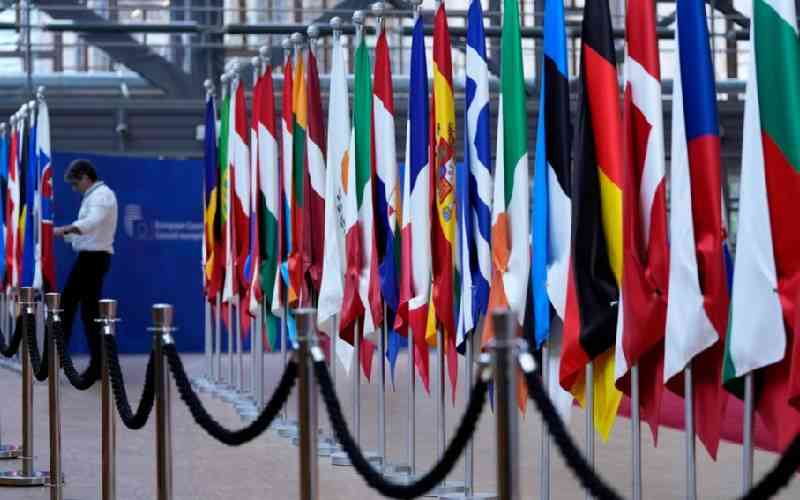×
The Standard e-Paper
Join Thousands Daily

European Union leaders meet Thursday in Brussels amid growing calls for Europe to drastically ramp up its defense spending and industry, as Russia gains ground in Ukraine and fears grow that Moscow will not stop there if it wins the war.
The two-day summit will also address other contentious issues, including the war in Gaza, future EU members, and immigration. But Ukraine and boosting the bloc's defense readiness top the agenda.